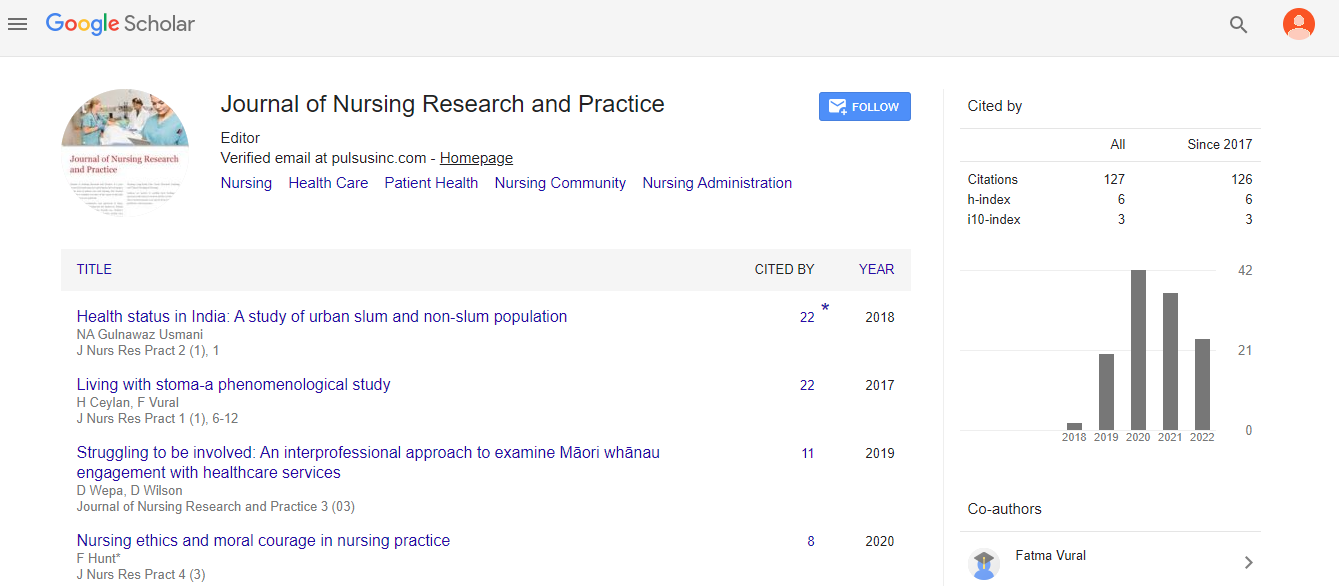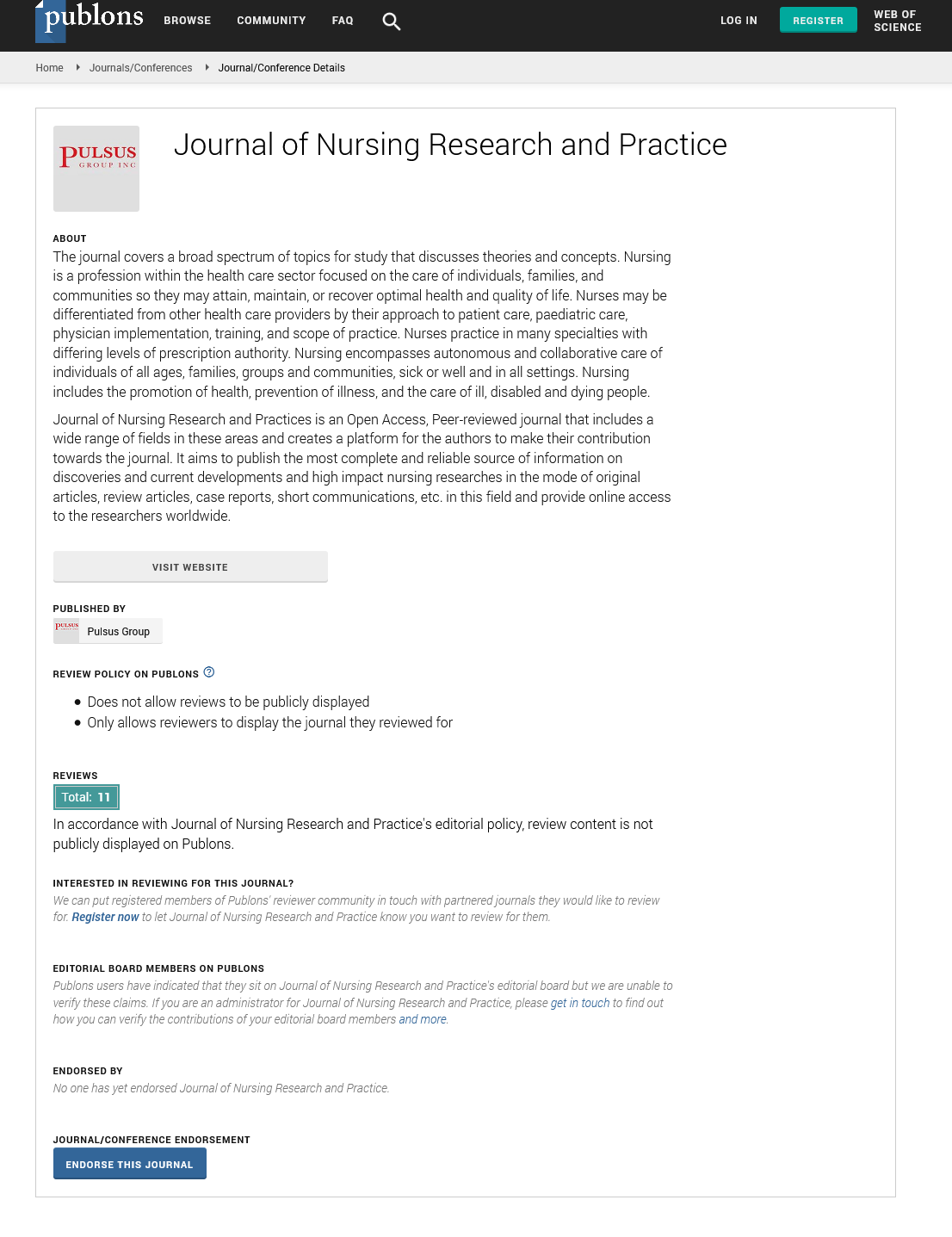Struggling to be involved: An interprofessional approach to examine Maori whanau engagement with healthcare services
2 Faculty of Health & Environmental Sciences, Auckland University of Technology, Private Bag 92 006, Auckland 1142, New Zealand, Email: wilson@gmail.com
Received: 19-Nov-2019 Accepted Date: Dec 16, 2019; Published: 23-Dec-2019, DOI: 10.37532/jnrp.2019.3(3).1-5
Citation: Wepa D, Wilson D. Struggling to be involved: An interprofessional approach to examine MÄÂÂÂori whÄÂÂÂnau engagement with healthcare services. J Nur Res Prac. 2019; 3(3):01-05.
This open-access article is distributed under the terms of the Creative Commons Attribution Non-Commercial License (CC BY-NC) (http://creativecommons.org/licenses/by-nc/4.0/), which permits reuse, distribution and reproduction of the article, provided that the original work is properly cited and the reuse is restricted to noncommercial purposes. For commercial reuse, contact reprints@pulsus.com
Abstract
Aim: Explain the processes that whÄÂnau MÄÂori used when engaging with healthcare services from an interprofessional approach.
Methods: A qualitative design using kaupapa MÄÂori methodology and constructivist grounded theory. The researchers were a registered social worker and registered nurse from New Zealand. We used semi-structured interviews with 20 MÄÂori whÄÂnau (74 people aged 18-70 years) living in rural and urban areas in New Zealand about their engagement with healthcare services. The data analysis used constant comparative analysis to develop a substantive grounded theory to explain the processes MÄÂori whÄÂnau use when engaging with healthcare services.
Results: MÄÂori whÄÂnau faced discrimination and constant struggles whilst engaging in health services to improve the health of their whÄÂnau member. Despite the many negative experiences, the collective orientation and the obligations of whÄÂnau contributed to their imperative to achieve the best healthcare for their whÄÂnau member. Struggling to be involvedexplains how MÄÂori whÄÂnau experience and navigate healthcare services amid surviving the experience and being MÄÂori, which together with a range of strategies that paradoxically assisted them to manage and survive their healthcare experience.
Conclusion: Current healthcare interventions do not appear to work for MÄÂori whÄÂnau in our study. Struggling to be involvedcontributes new knowledge about nature of MÄÂori whÄÂnau engagement with healthcare services and signals areas where interprofessionals can assist with reducing health inequities for MÄÂori.






